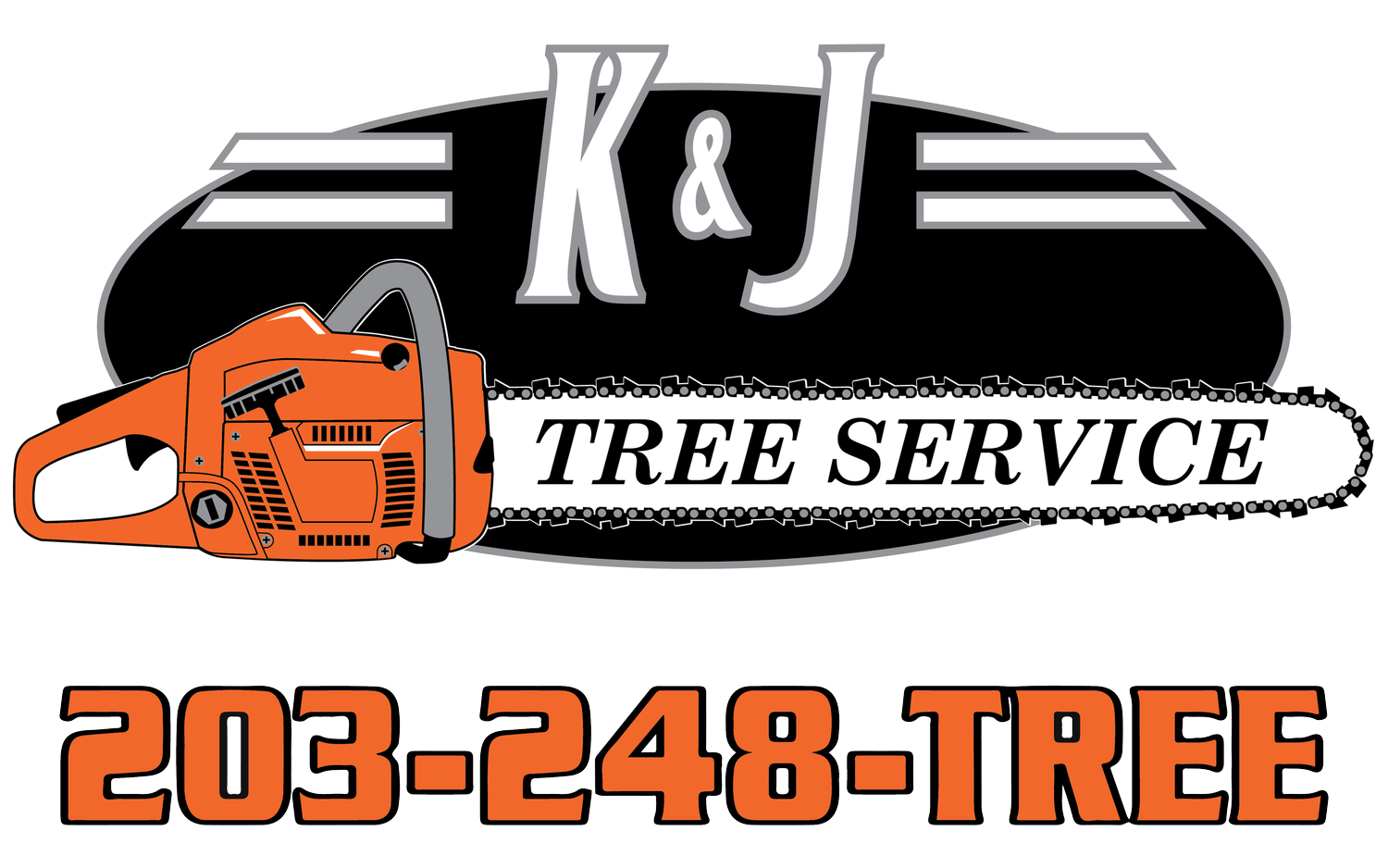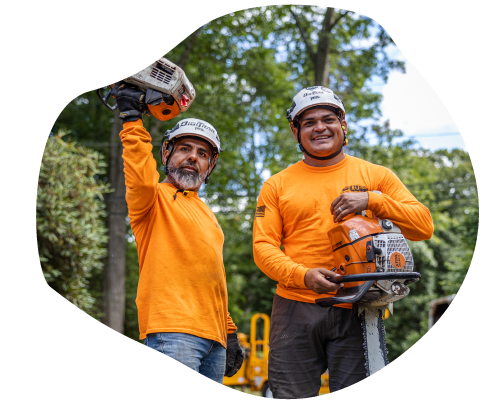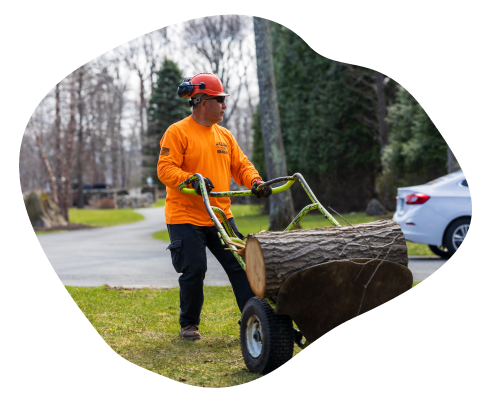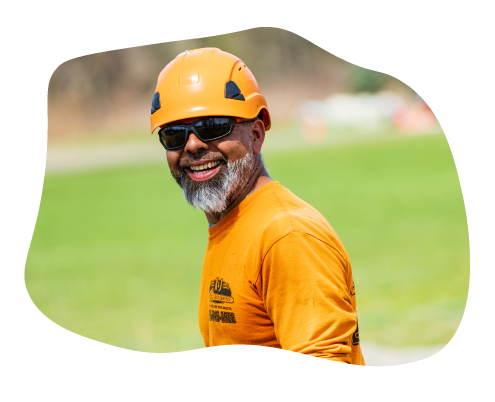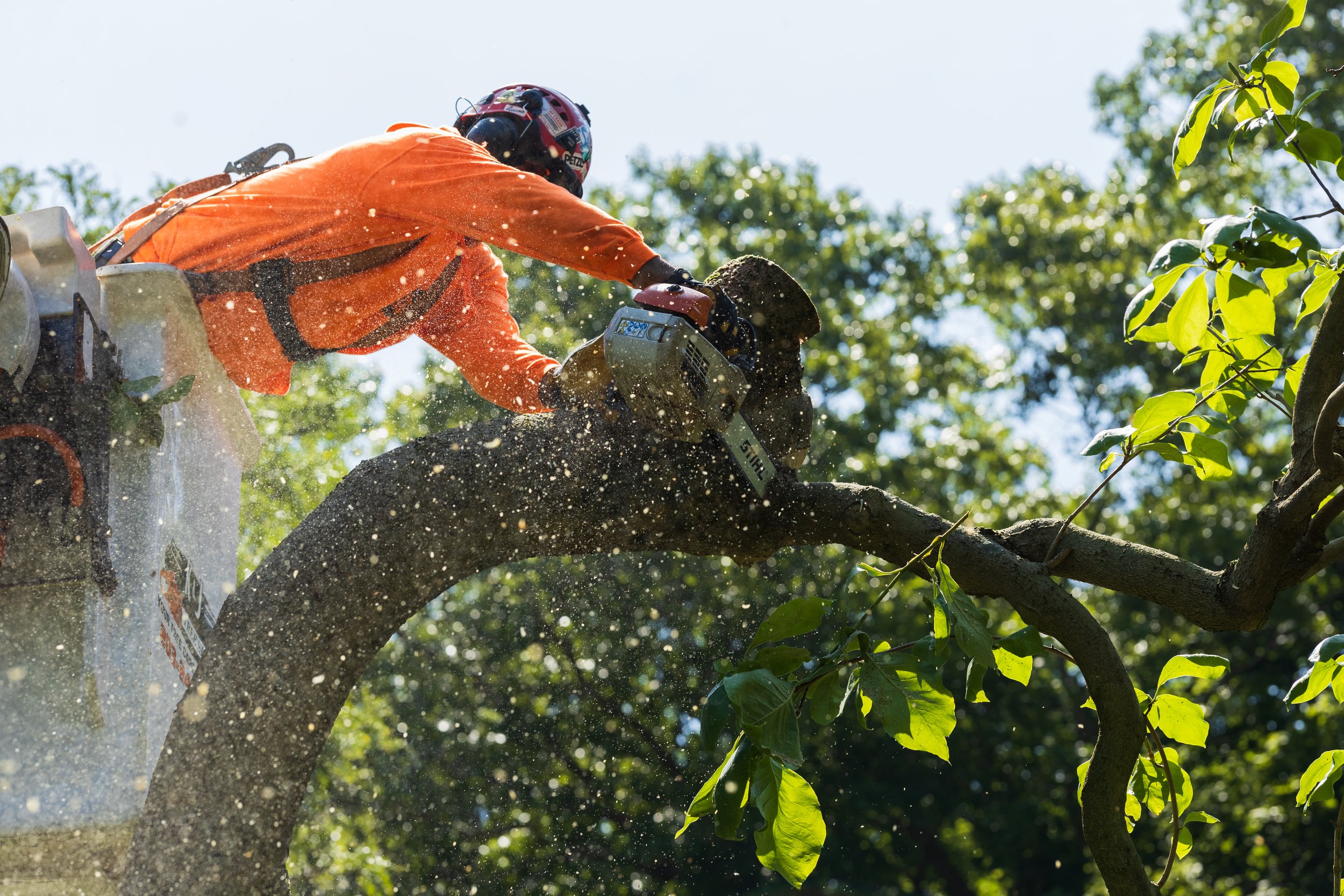
tree removal process in
5 steps
STEP 1:
Contact K&J for a free assessment, onsite quote, and convenient scheduling.
STEP 2:
Crew arrives, assesses property, implements safety measures, and stages equipment.
STEP 3:
Crew dismantles tree safely, chips branches, cleans job site, and meets with the homeowner before departure.
STEP 4:
Logs are relocated and hauled away by a grapple truck after your tree removal job.
STEP 5:
We guarantee 100% customer satisfaction and request payment once you're satisfied with our work.
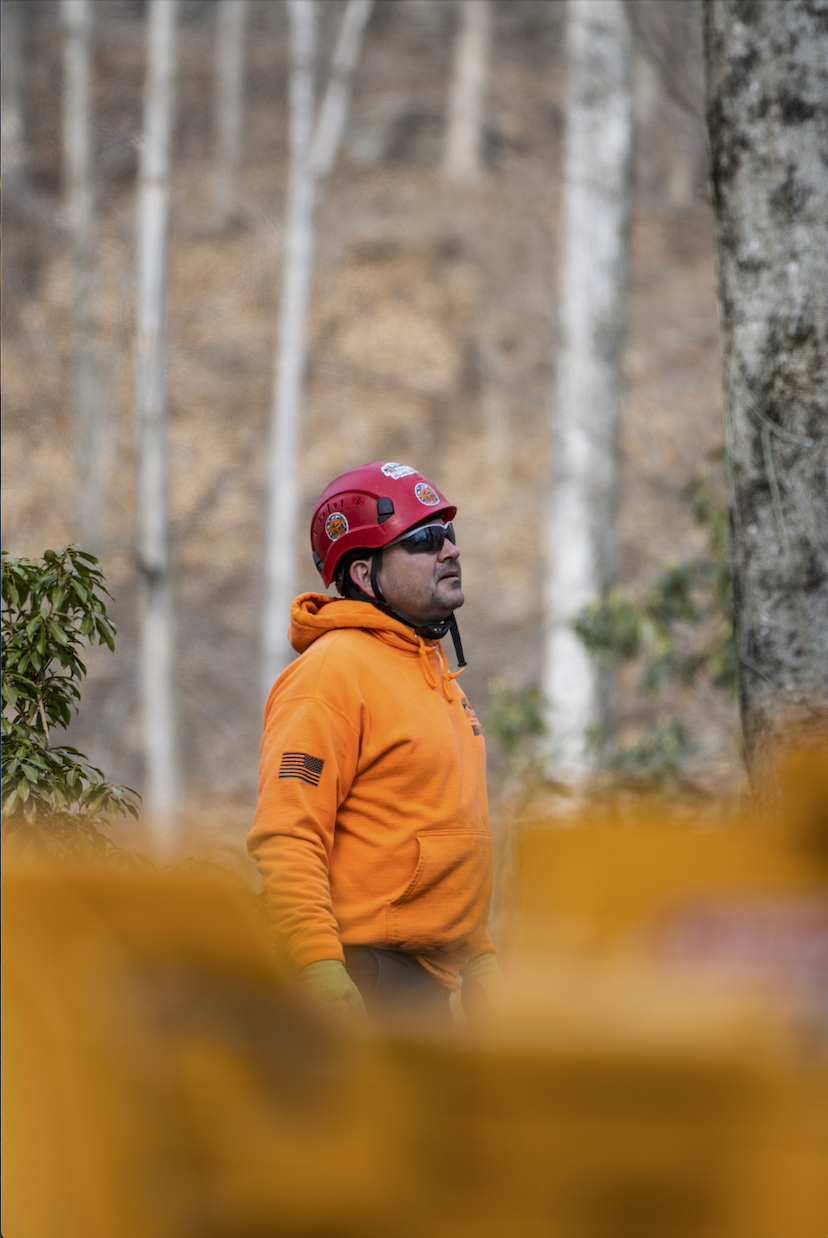
Step 1: Assessment
1.1: Contact k&J Tree service
Reach out to our customer service team by giving us a call, sending an online chat, or submitting a contact form.
1.2: Schedule Assessment
Our customer service team will schedule a licensed arborist to come to your property to conduct a tree assessment – at no cost. This assessment is critical for our team to get a full scope of your job.
1.3: complete assessment
During the assessment, the arborist evaluates the tree’s health and condition, the geography of the job site, and any physical obstacles we need to accommodate. Based on the information gathered and the type of machinery required, the arborist will prepare an onsite quote to email you. (See our pricing page for more details on factors determining tree removal cost.)
1.4: approve quote
If you’re satisfied with the quote and ready to work with us, you’ll electronically approve the quote via email.
1.5: schedule work
After you approve the quote, our chief scheduling officer will reach out to schedule your tree work. Then, the day before your job, you’ll receive a text message with an arrival window for when the crew is expected to be at your property.
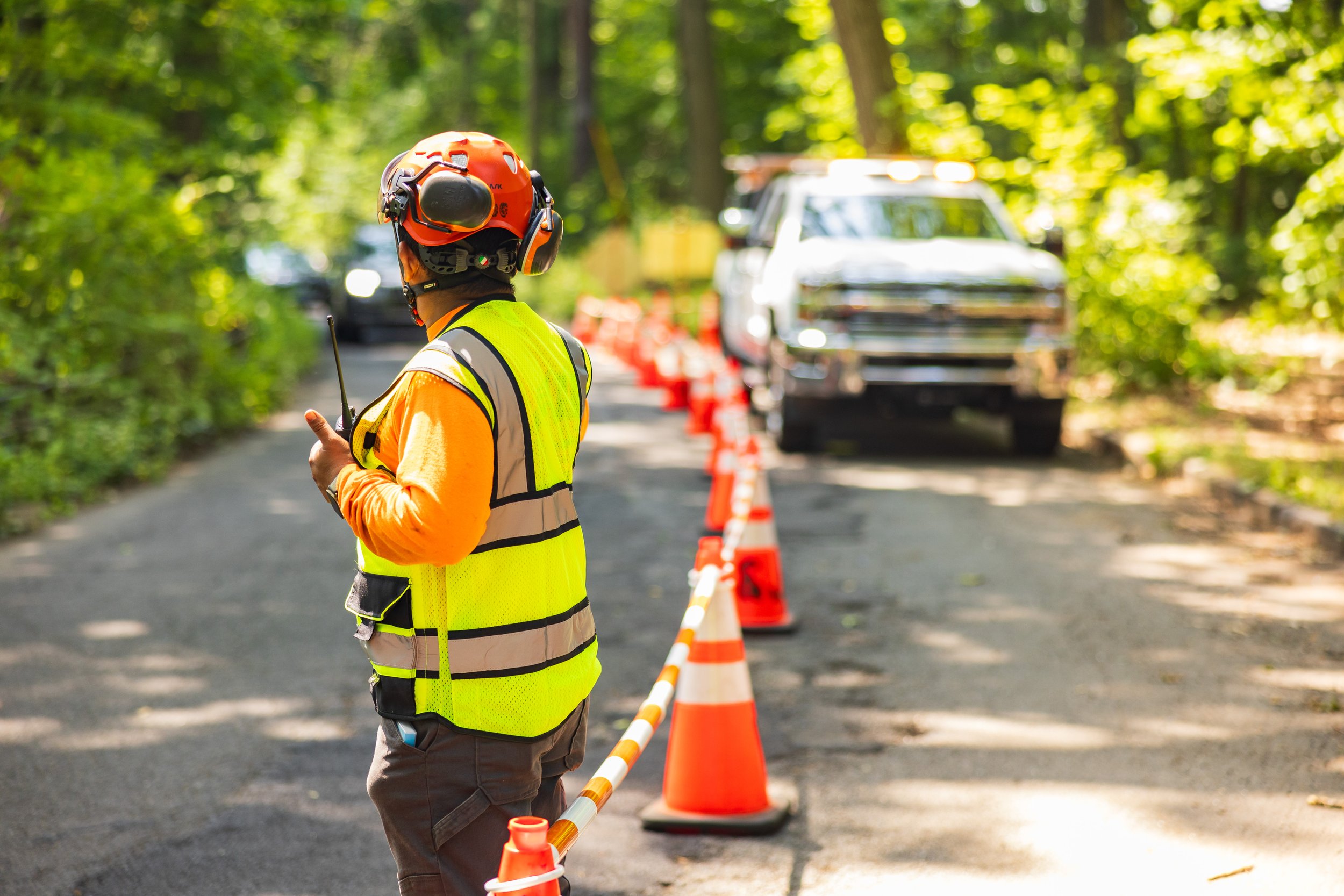
Step 2: preparation
2.1: show up on site
A three- or four-person crew will arrive at your property with a chip truck, bucket truck, and any other equipment needed to perform the tree work.
2.2: property walk-through
Before doing anything, the crew will walk your property to assess the best route to the job site, and evaluate the tree and its surrounding area.
2.3: review work order
Next, the crew reviews your work order, which describes the services you’ve requested and notes any hazards to avoid, or instructions for where equipment is allowed—or not allowed—to go.
2.4: safety measures
If the crew needs to drive equipment on your lawn, they will lay down ground protection mats. And if they need to keep equipment on the street, they’ll set up a traffic cone pattern operated by a certified flagger to ensure a safe work zone.
2.5: stage equipment
Now that the crew has a lay of the land, they can stage their equipment on the property in safe areas. And they’ll also gear up by putting on personal protective equipment that adheres to OSHA safety standards.
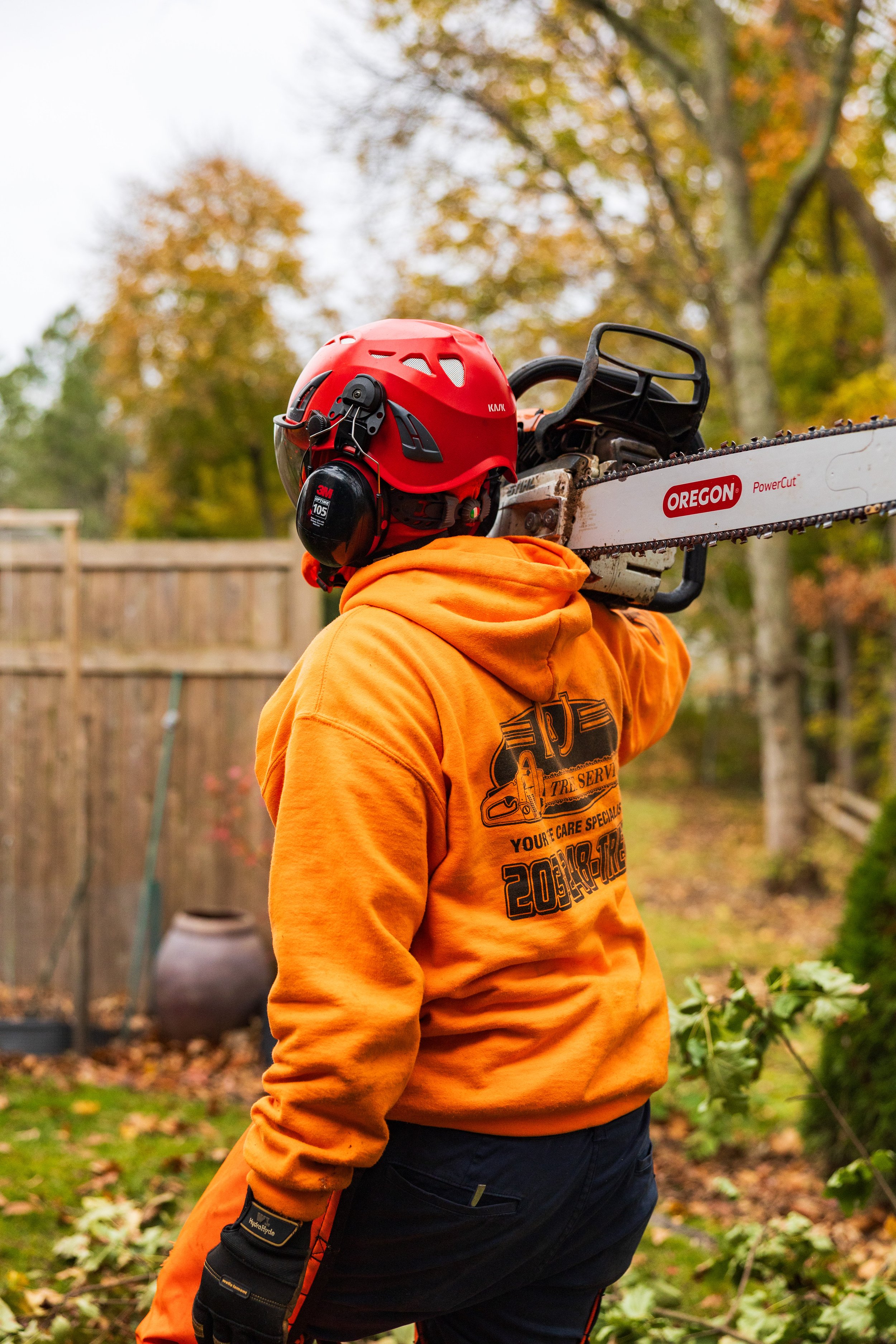
Step 3: Tree removal
3.1: Dismantle tree
The crew will dismantle your tree by safely rigging it down in sections. Depending on its location, the crew will access the tree by physically climbing the trunk, using a boom lift on a bucket truck, or, in some instances, operating a crane.
3.2: chip brush
As the crew dismantles a tree, they dispose of debris by putting limbs and branches through their woodchipper. Because this machine cannot handle the diameter and weight of large tree trunks, the crew will cut the trunk into manageable-sized logs and leave the wood behind at the job site for the removal crew to take away.
3.3: debris disposal
If the chip truck fills up in the middle of your job, a crew member will need to drive the truck to a designated location to unload the woodchips before returning to finish your job.
3.4: Clean Up Job site
Once your tree work is complete, the crew will thoroughly clean up the job site, picking up limbs, raking, and leaf blowing.
3.5: meet with homeowner
Before the tree crew departs, they will meet with you to ensure they completed all the requested services and to discuss any questions or concerns.
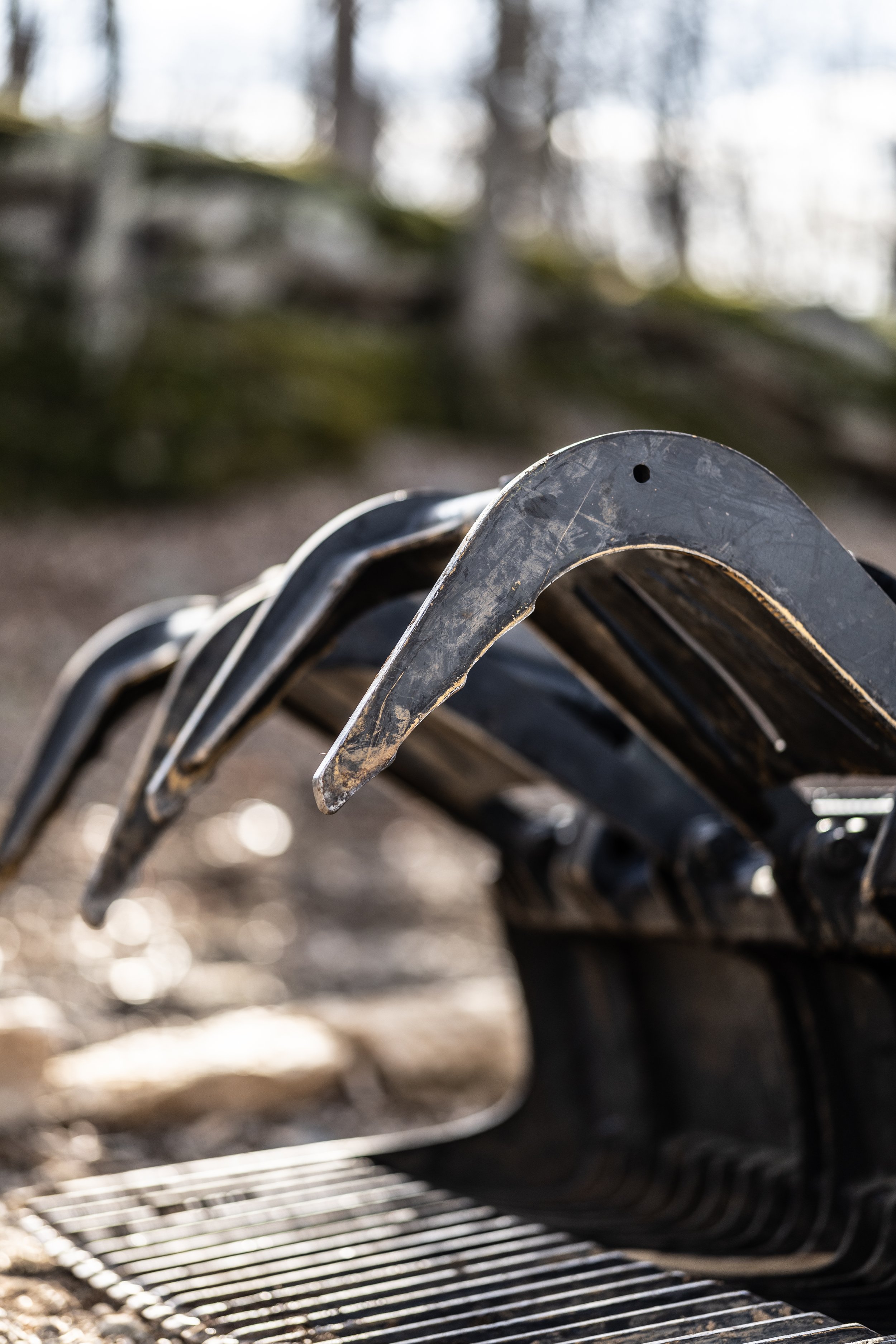
Step 4: Pick Up Logs
4.1: relocate logs
After your tree work is done, we’ll send our wood removal crew out to move any remaining logs from the job site to the curb, using a skid steer or log dolly. These are pieces of wood that were too big for the original crew to put through the woodchipper.
4.2: haul away logs
Next, a grapple truck will pull up in front of your property and use its claw to pick the logs up and load them into the truck. This may not happen on the same day as your tree work, but the crews will be there as soon as possible.

Step 5: follow-up
5.1: ensure 100% customer satisfaction
We promise to deliver 100% customer satisfaction with every job. If there is any issue, we have processes to address and rectify the situation.
5.2: request payment
Once you are satisfied with our work, we’ll send an invoice and ask that you submit payment.
FAQ
-
K&J Tree Service requires all customers to first schedule a tree risk assessment—at no cost—for our team to get a complete understanding of what your job entails. During an assessment, a licensed arborist will examine the tree’s physical structure, the surrounding area, and the equipment required for the job. For instance, is the tree healthy or diseased with a leaning trunk? Is it accessible or in a hard-to-reach location where a crane is needed? Will equipment need to be staged on a busy street, requiring traffic control? The arborist will be able to answer all these questions and more during the assessment. And while they’re onsite, the arborist uses the information to prepare your quote. (See our pricing page for more information on factors that determine the cost of tree removal.)
-
The first thing to do to help you determine if a tree should be removed is to consult with a licensed arborist. But, as a homeowner, it’s important to stay vigilant and watch for potential hazards throughout the year. Fungal growths, wilting leaves, discoloration, and a lack of foliage production are all possible signs of disease. Excessive deadwood, cracks, and leaning trucks can point to structural instability. And activities such as land clearing, soil excavation, and heavy foot traffic or paving around the tree’s base, can also be factors to negatively affect the tree’s health and longevity.
-
While every tree has unique circumstances that account for how long a removal job will take, below is an estimated range for tree removal based on size. Remember that actual removal times may vary based on specific factors related to a tree and its surrounding environment.
Small (under 20 feet): Less than 1 hour
Medium (40 feet) with narrow canopy: 1-2 hours
Medium (40 feet) with wide canopy: 2-4 hours
Large (70 feet) with narrow canopy: 3-6 hours
Large (70 feet) with wide canopy: 6-8 hours
-
As the crew dismantles a tree, they dispose of debris by putting limbs and branches through an onsite woodchipper. However, this machine is not designed to handle the diameter and weight of large tree trunks. In these cases, the crew will cut the trunk into manageable-sized logs and leave the wood behind at the job site. Then, we’ll send our wood removal crew out with a skid steer or log dolly to move logs from the tree removal site to the street curb. Then, a grapple truck arrives to pick up the logs and put them in a truck to haul away. This may not happen on the same day as your tree work, but the crews will be there as soon as possible.
-
During your tree removal job, you may notice that the chip truck leaves in the middle of the job when the work is unfinished. The chip truck is essentially a woodchipper with a shoot aimed into a closed dump, all attached to a truck. As the crew runs debris through the chipper throughout the day, at some point, the closed dump will fill up and need to get dumped. If this happens while the crew is at your property, one of the crew members will need to drive the chip truck to a designated location to unload the woodchips before returning.
